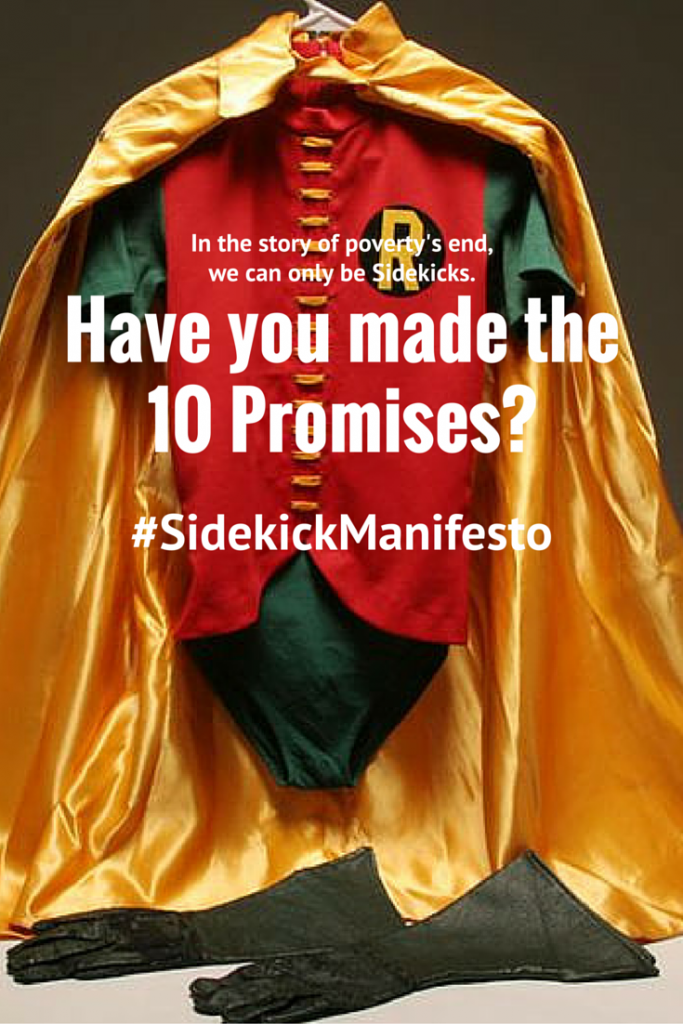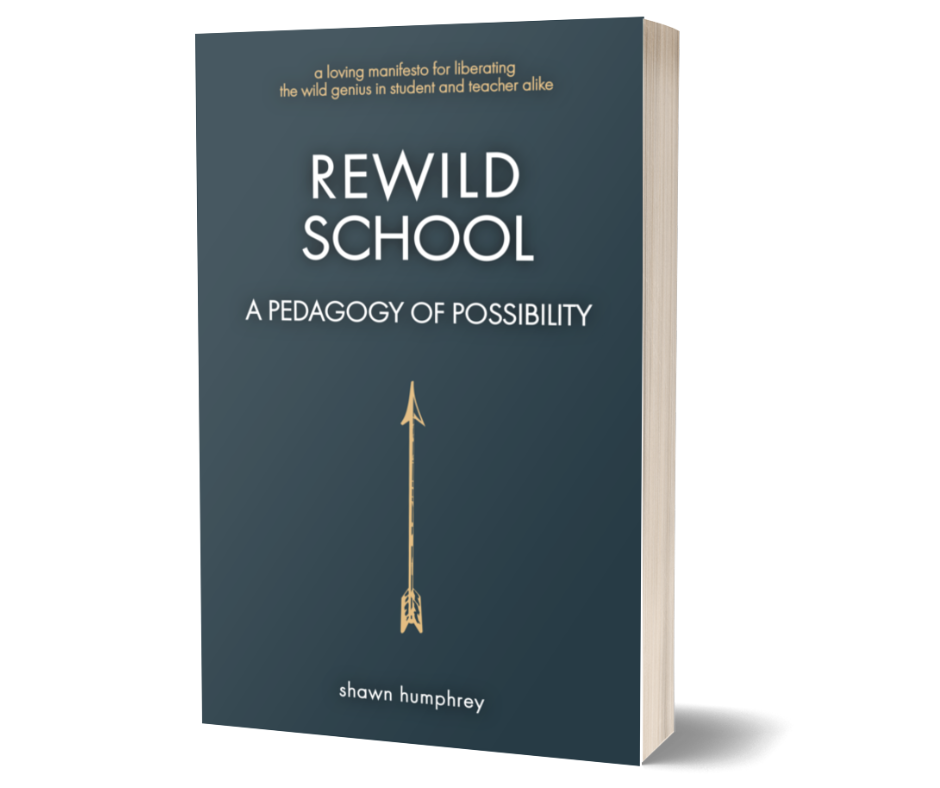The 10 Promises of a Social Good Sidekick
“So, what can I do to end poverty?!”
I get this question a lot. And, I usually get it in an exasperated tone.
I should.
I spend a lot of time on this blog, in my classes, and in conversations with family and friends saying things like “Huh, you shouldn’t do this” and “Whoa, I wouldn’t do that”.
I suppose it can all be very frustrating.
Now, to be honest, I’ve never sat down and answered this question before. It’s a hard question to answer. But, for this year’s Global Two Dollar Challenge, I’ve decided to give it a shot. So, if you are in the social good space and you want to end poverty, here’s what you can do:
Become a SIDEKICK.
Local Leaders with local solutions to local problems will end poverty. You will not. I will not. We cannot. In the story of poverty’s end, we cannot be HEROES. But, we can be SIDEKICKS. You can too. And, if you want to, here’s what you will need to do:
You will need to learn a new language. You will need a new global positioning system. Our old system – the one that positioned us at the center of the social good space – is outdated. We neither deserved nor knew what to do with that positioning. In turn, you will need to reconsider your place, role and responsibilities in this world. You will need to lay bare your motivations, strengths, and limitations when it comes to making a difference. And, you will need to make some promises.
10 Promises to be exact:
-
I will ride in the sidecar.
I will not lead. I will listen as those already doing the difficult work of building a better future for themselves, their families and their communities define and determine how to end poverty.
-
I will ignore sirens singing songs of scale.
Building dignified relationships is a mutual process of learning about and from one another. This takes patience, humility and authenticity – these things cannot be rushed or easily scaled.
-
I will question the utility of my utility belt.
Technology and gadgets are helpful (sometimes). But, they do not address the root causes of poverty. Poverty is about power and politics.
-
I will be the constant understudy.
A crucial reason that good intentions so often fail is a lack of self-critique. I will always be listening, learning, and seeking a deeper understanding of my role in the story of poverty’s end.
-
I will welcome my sidekick slaps.
I will make mistakes. And, when I do, I will take responsibility, hold myself accountable, and act differently moving forward.
-
I will step out of the spotlight.
Sustainable solutions to poverty come from within are bottom-up, and flow from local leaders who are taking the risks of holding their politicians accountable and challenging the status quo.
-
I will exercise narrative humility.
I cannot know another’s story of material poverty. I don’t know how it began or how it will end. It is not my story. Before sharing it with others, I will seek permission: No More Stolen Stories.
-
I will explore my dark side.
I will ask “Do I want poverty to end? Who would I be without it? What would I do? Do my politics and consumption patterns perpetuate poverty? Am I complicit in its persistence?”
-
I will read “To Hell with Good Intentions” again and again.
Politicians, celebrities and billionaire philanthropists will tell me that I can be a hero. I cannot. The poor are not powerless or waiting to be saved. Illich will check my delusions of grandeur.
-
I will hang up my cape.
In my search for meaning and significance, I will learn to turn inward and activate my own agency before trying to eradicate another’s material poverty – which I cannot.

Poverty is about power, politics, and a system of rules that allows so few to capture so many of the benefits of economic growth. Poverty is human-made. And, it can be unmade by humans. That includes us. That is, if we choose to take up the task as Sidekicks not Heroes.
There’s a movement afoot in the social good space. It’s made up of a coalition of educators, thought leaders, and young people who have decided to hang up their capes. We want you to join us.
We are striving for a fundamental and sustainable change in how our culture interacts, communicates, and articulates its relationships with those it deems to be materially poor.
If you want to join us, Click here to read our Sidekick Manifesto, take the Sidekick Pledge, and share the Sidekick Manifesto with your community!
Let’s change the conversation.
(ht Laura Dick, Sanitago Suireo, and Jeff Paddock for their invaluable feedback)
+++++
If you enjoyed this blog, you may enjoy my This is the Work newsletter.
Thanks. – shawn

